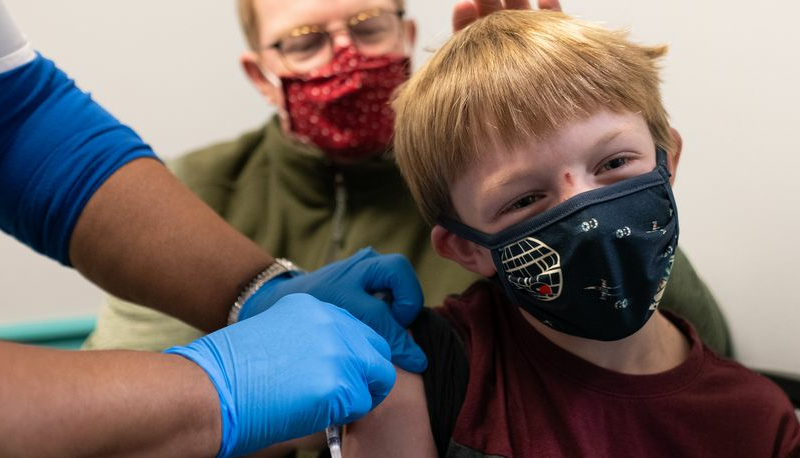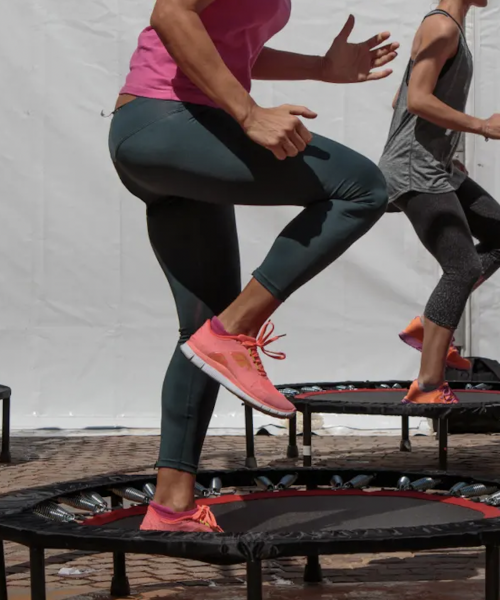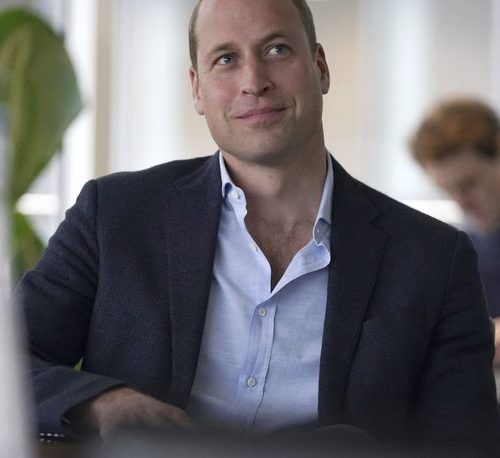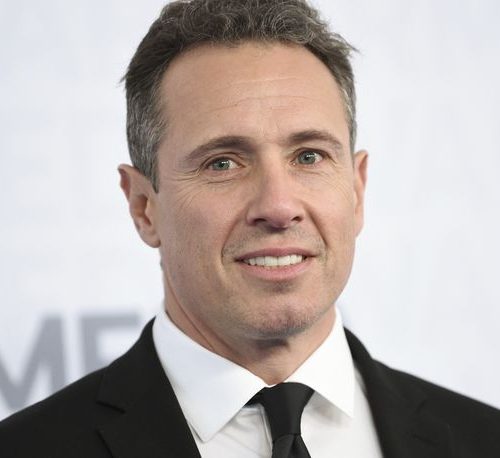By Helena Oliviero – The Atlanta Journal-Constitution
John Perry – The Atlanta Journal-Constitution
Troy Warren for CNT #COVID-19 #Health
Even before the omicron variant was detected, Georgia parents were taking their time seeking the shots for children
As a new and fast-spreading variant sparks global concern, public health officials are renewing calls for adults — and children — to get vaccinated.
But the pace of vaccinating children in Georgia, especially younger children, lags behind the national average.
National Institutes of Health Director Francis Collins said this week the new omicron variant makes getting children and teens vaccinated more urgent.
Noting vaccines for children as young as 5 were authorized about a month ago, he said on Good Morning America, “The uptake in kids has been not as accelerated as it could be or should be. I know parents are looking closely at this (and) want to be sure the benefits are there and the risks are manageable. The data is very compelling.”
So far, little is known about the new variant omicron and whether it causes more — or less — severe disease. It’s also not yet known if existing COVID-19 vaccines will maintain their effectiveness against the virus. The vaccines will likely continue to prevent severe illness and death, although booster doses are advised to ensure complete protection for most vaccinated adults. The makers of at least two vaccines are preparing to reformulate their shots if necessary.
Pfizer, the only vaccine authorized for children, is reportedly expected to apply this week for regulatory approval for a booster shot of their coronavirus vaccine for 16- and 17-year-olds. Boosters have already been approved for those 18 and older.
As of Tuesday, 70,806 children ages 5 to 11 in Georgia have gotten at least one dose of vaccine, according to federal data. That amounts to only 7.3% of that population, according to data published by the U.S. Department of Health and Human Services.
That’s well behind the national average. More than 4.2 million 5- to 11-year-olds in the U.S. have received at least one dose of the Pfizer vaccine as of Tuesday, according to HHS data. That equals 14.7% of the U.S. population in that age range.

Dr. Hugo Scornik, a Conyers pediatrician who leads the Georgia chapter of the American Academy of Pediatrics, said the uptake of the vaccine appears to vary throughout the state with demand generally higher in metro Atlanta than rural parts of the state. But even within these areas, it can differ.
“Some places are totally swamped with vaccine demand and with others it’s kind of slow,” he said.
Scornik said while children who catch the coronavirus tend to have milder symptoms than adults, they can, in rare instances, have severe complications. Children can also suffer from the lingering symptoms of long COVID. Children can also spread the disease, so vaccinating young people can help break the chain of infection. Scornik also believes vaccinating children is key for children to resume many parts of their normal life.
People 17 and under in Georgia made up about 3% of hospitalizations and 0.01% of confirmed COVID-19 deaths, according to an analysis of state data over a recent four-week period ending Nov. 22.
Clinical trials Pfizer conducted in children ages 5-11 found the vaccine to be 90.7% effective in preventing symptomatic COVID-19.
Here’s a few common questions about vaccinating children:
How does the vaccination rate among younger children compared to older children 12-to-17-year olds? The vaccine for younger children has been authorized only about a month ago, so it’s still early. Among Georgia’s 12- to 17-year olds, 350,851 of them are fully vaccinated, equivalent to about 40% of that age group. An additional 8.5% in this age group got one dose.
Where can children in Georgia get the vaccine? Children as young as 5 can get a COVID-19 vaccine at their pediatrician’s office, as well as pharmacies and mass vaccination sites such as Viral Solutions drive-through vaccination sites. Several school districts, including Atlanta Public Schools and DeKalb County Schools, said they were planning several vaccination events. Visit vaccines.gov to find a location giving shots to children. Some sites may require appointments, while others will offer shots on a walk-in basis.
How is COVID-19 vaccination different for children younger than 12? The Pfizer vaccine for 5- to 11-year-olds is one-third of the adult dose. The vaccine also differs from the existing formulation that teens and adults receive because it can be stored in a refrigerator for up to 10 weeks — making it easier for pediatricians and others to keep and administer the vaccine. Like older age groups, the COVID-19 vaccine authorized for younger children involves two injections, given three weeks apart.
What are the side effects? Most children had no side effects other than pain at the injection site, according to the Pfizer clinical trial in children in this younger age group. Those who did have side effects most commonly experienced fatigue, headaches, and/or muscle aches, which were typically more frequent after the second dose. Side effects typically lasted one to three days.
What is the risk of heart problems after the vaccine? In the U.S., there has been an increase in reported cases of myocarditis and pericarditis after COVID-19 vaccination with the Pfizer or Moderna brands (which work differently than the Johnson & Johnson vaccine), particularly in males ages 12 through 17. Myocarditis is the inflammation of the heart muscle, while pericarditis is the inflammation of the lining outside the heart. These reports are rare. And most people recover quickly.
No cases of myocarditis were found in Pfizer’s trial involving 2,268 children ages 5-11 submitted to the FDA. But Dr. Leslie Ball, a medical officer at the FDA, said the studies were not large enough to necessarily pick up an uncommon side effect like myocarditis. Studies have shown that coronavirus itself, which can infect the heart, is much more likely to cause heart problems than vaccination.
What if my child has already had COVID-19? Public health experts say we don’t know how long protection lasts after natural infection, and getting your child vaccinated can help protect your child from getting the virus again. Like adults, vaccinated children have a lower the chance of needing hospitalization if a breakthrough infection occurs.
Should I wait for vaccines to be reformulated specifically to fight the omicron variant? Health officials say age-eligible children are urged to get vaccinated as soon as possible and not wait for any updates to the vaccine formula.
When will vaccines be approved for children younger than 5? Clinical trials are underway for children ages 6 months to 4 years of age, and COVID-19 vaccines for this very young age group aren’t expected until sometime in early 2022.
-Staff writers J. Scott Trubey and Ty Tagami contributed to this story.
In Other NEWS




































